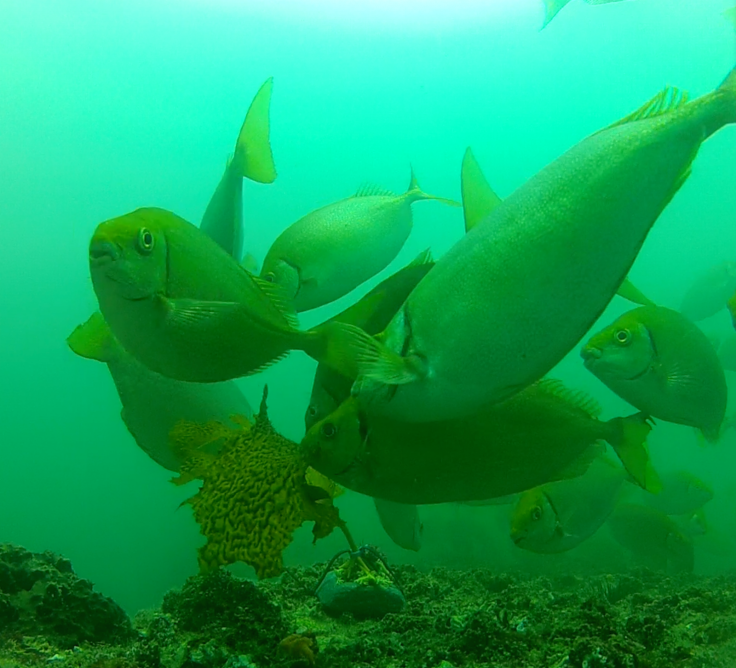Ravenous rabbitfish are devouring kelp forests
Warmer seas have opened up new areas of kelp forest to fish feeding frenzies.
A warming climate is making seaweed-eating fish hungrier – and they're munching through kelp forests off the coast of New South Wales at a rate of 300 bites an hour, a new study finds. The appetites of rabbitfish and drummer fish in particular are having a profound impact on this marine environment, leading to kelp deforestation and barren reefs, according to a study published in the journal PNAS.
Fish in the area were monitored using underwater cameras over a period of 10 years in order to measure the extent and speed of kelp forest destruction.
During this time, the water off the New South Wales coast warmed by 0.6°C. "Kelp forests completely disappeared from all of the study sites during this period," the study authors write.
This increase in temperature had two effects on kelp forests. Areas that were previously too chilly for warm-water, seaweed-eating fish became more habitable, allowing the fish to increase their range, says study author Adriana Vergés of the University of New South Wales and the Sydney Institute of Marine Science.
As well as making larger areas of sea available to the fish, the warming seas actually increased the fishes' appetites.
"This is the first study demonstrating that the effects of warming in kelp forests are two-fold: higher temperatures not only have a direct impact on seaweeds, they also have an indirect impact by increasing the appetite of fish consumers, which can devour these seaweeds to the point of completely denuding the ocean floor," Vergés says.

As well as monitoring the destruction of kelp forests off this stretch of the New South Wales coast, Vergés and her colleagues also carried out an experiment in which they transplanted kelp on to the sea bed. They used these plants to measure how quickly the fish were attacking the new kelp plants, and monitored them using underwater cameras.
"We found that two warm-water species – rabbitfish and drummer fish – were the most voracious, eating fronds within hours at an average rate of 300 bites per hour," says Vergés.
"Kelp forests provide vital habitat for hundreds of marine species, including fish, lobster and abalone," she adds. "Increases in the number of plant-eating fish because of warming poses a significant threat to kelp-dependent ecosystems both in Australia and around the globe."
This could have economic as well as ecological impacts, the study authors say. Commercial fisheries and tourism in Australia rely on kelp forests, which are estimated to have an economic value of A$10 billion a year.
© Copyright IBTimes 2025. All rights reserved.






















